‘Tis the season to be afraid.
No, I’m not confusing the Holiday Season—fuck it, I mean the Christmas Season—with Halloween. I mean the real season of horror, the one when the days are shortest, when Winter is not only Coming but finally Gets Here. The one when if, at least in some parts of the world, you’re kept out of the inn, you might freeze to death… if the creatures of the long night don’t rip you and your newborn to pieces first.
If you pay attention to, well, people who know things, you know that the Jesus Christ of the Bible wasn’t born in late December but likely in April, but the Catholic Church decided many moons ago that timing His birthday around big pagan party time, already existing Solstice celebrations, would lubricate conversion. Christmas goes hand in hand with Easter: the coming and going of the cold months, the hard months—the birth, death, and resurrection of the Savior—fit neatly together, becoming a package of holidays to celebrate light at the beginning and end of the year’s greatest darkness (at least in the globe’s northern hemisphere).
My point is that historically, Christmas Day itself is a symbol of light deliberately placed in the middle of great darkness, and as such it calls attention to the dark mire it would illuminate. And for many of us in the Christmas Belt, an accessory that holds up much of the world’s economy around this time of year, it does. I paraphrase a line from the Christmas horror film—one of many—Gremlins (1984), which made a deep impression on me as a child: commenting that “the suicide rate’s always the highest around the holidays,” a character remarks of some unhappy people, “While everybody else opens up presents, they’re opening up their wrists.”
I suppose seasonal affective disorders (the SADs!) could explain a lot of the suicides, as well as the popularity of my genre around this time—more about that in a moment—but I think not, and I don’t think many of you readers would let me go with such a facile explanation, either, because if you’re a grown-up who finds the idea of a strange man invading your house via chimney more terrifying than otherwise, you know that this time of “magic” has a lot to do with the Dark Side of the Force.
Let us consider, then, five reasons beyond seasonal affect why this season is one of darkness and doom. Afterwards, I’ll close with something less depressing, but first, I’ll note that all five of these reasons are major themes of everyone’s favorite Christmas horror story—not the one about putting an eye out, which is horrific enough—but Charles Dickens’s story about ghosts that gleefully torture an old man, “A Christmas Carol:” 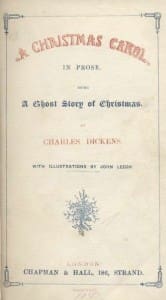
- Money. This year, like every year recently, I tuned into news on Black Friday and heard both stories: first, retailers were disappointed by people not spending enough, and second, retailers were beset by outrageous violence committed by people too desperate to spend. ‘Tis the season to spend on yourself, on others, and there’s never enough. You never get enough or give enough, and in the process of being inadequate, you do damage to yourself and others. You feel your inadequacy and the damage you do, and do you feel good about giving and receiving? Of course not. You feel like the shit of the capitalist world.
- Charity. Santas and others ring bells outside grocery stores and everywhere else, trying to guilt people into giving to strangers while they’re trying to stretch their budgets far enough to accommodate everyone on their lists. Let’s face it, the world is falling apart. It needs people to be charitable, and we all know, as Bernie Sanders keeps reminding us, that most of the wealth is going into the pockets of 1/10 of 1% of the population and just disappearing there, so the rest of us are supposed to sustain the exploding population with the scraps, but we… can’t… do it. So, defeated, most of us don’t even try very hard, or at all. And we just feel shitty about it, because shitty feelings are really all we have to spare.
- Love. Speaking of things we all want but don’t get enough of, what but pictures of beautiful people enjoying each other’s fond company as they revel in gifts can remind us better of what we don’t have? More poignant than the missing presents is the missing people, and for every person who’s happy in love, you can find two who have lost each other, or who have each other but have lost whatever brought them together, or who never found one another to begin with. As the nights get longer, people get lonelier, and the illusion that everyone is celebrating togetherness underscores loneliness like nothing else can.
- Age and Death. People have more to lose than romance. Christmas magic, if it worked for you at all, probably worked for that short span of years when your brain was underdeveloped and you could actually believe in flying mammals with glowing noses. Your childhood is gone. What did you lose with it? Who used to be with you on these holidays who isn’t now? For many of us, this is a season of remembering, and remembering ain’t always a happy act.
- Family. Those who don’t have family, mourn, and those who do—well, those who do aren’t necessarily happy, either, because with all the other crap happening, families are seldom at their best when they finally all gather ’round that tree or sacrificed feast animal or whatever it is that brings them all to one place to judge one another and seethe. For many, Christmas is the time to peel away scabs or simply reopen old wounds. Have some more nog and let loose on those weaknesses only you know about, push those buttons only you can—you’re family.
Now that I’ve argued that pretty much everything good is bad, you might think I’m advocating for the Gremlins-described suicide solution or at the very least for cancelling Christmas, but far from it. Although it’s not my favorite holiday, I like Christmas and have, in fact, already told you why: it is the light placed here to remind us of all this darkness, and as a sort of memento mori, Christmas deserves acknowledgment for what it is, a fuzzy center in a hole of suck.
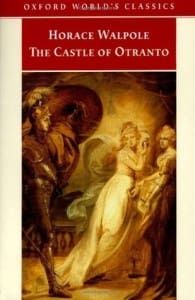 Thanks to Charles Dickens, Joe Dante’s Gremlins, and everything from the original Dec. 24, 1764 Gothic novel Castle of Otranto to the present-day Krampus, our popular culture has served up a large vein within the horror genre to slice into as a means of exploring the suckhole of Christmas, not as a religious holiday but as a cultural phenomenon that combines the best and worst of humanity in a colorful package with a bow on top. These fictions of fear can displace all the terrors of our lives’ vacancies onto monsters we can see and maybe even fight and destroy. We can’t easily solve the problem of who’s not with us by the tree this year, but we sure can imagine using simple sunlight to beat back the tide of gremlins, and hey, maybe all it takes to make charity work is to show the most monstrous of the 1% a few well-timed ghosts.
Thanks to Charles Dickens, Joe Dante’s Gremlins, and everything from the original Dec. 24, 1764 Gothic novel Castle of Otranto to the present-day Krampus, our popular culture has served up a large vein within the horror genre to slice into as a means of exploring the suckhole of Christmas, not as a religious holiday but as a cultural phenomenon that combines the best and worst of humanity in a colorful package with a bow on top. These fictions of fear can displace all the terrors of our lives’ vacancies onto monsters we can see and maybe even fight and destroy. We can’t easily solve the problem of who’s not with us by the tree this year, but we sure can imagine using simple sunlight to beat back the tide of gremlins, and hey, maybe all it takes to make charity work is to show the most monstrous of the 1% a few well-timed ghosts.
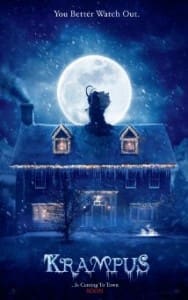 The fantasies are simple on the surface, yes, but so are the illusions of childhood, and come Christmas time, don’t we all deserve a little bit of simple? The problems with which they help us to cope are about as hard as problems come, so maybe some simple is what we need to crawl out of the suckhole, at least for a day.
The fantasies are simple on the surface, yes, but so are the illusions of childhood, and come Christmas time, don’t we all deserve a little bit of simple? The problems with which they help us to cope are about as hard as problems come, so maybe some simple is what we need to crawl out of the suckhole, at least for a day.
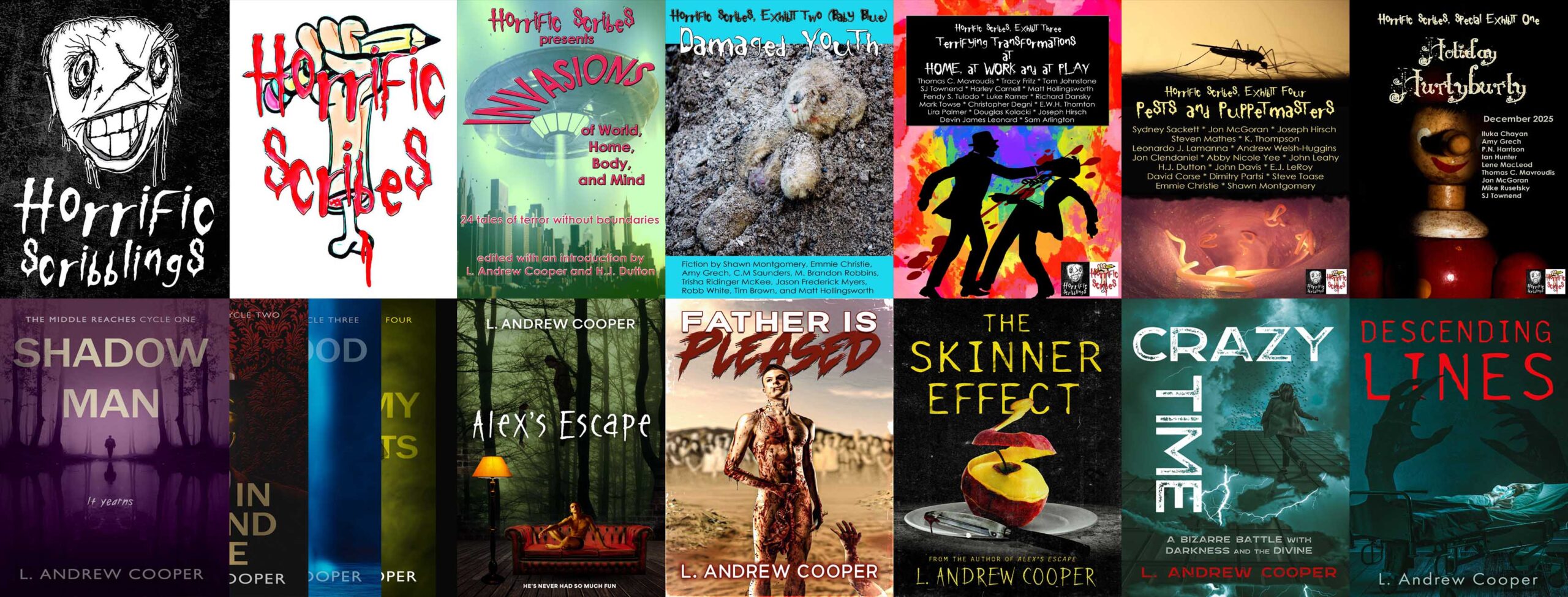
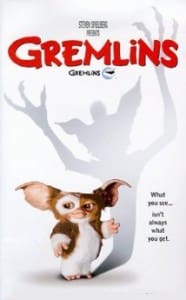
Comments are closed.